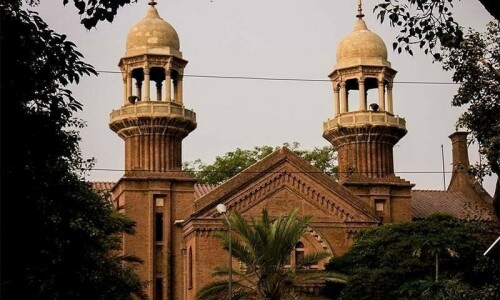THE fundamental interconnectedness of a timely and accurate census, electoral reforms and fair and transparent elections is well known. What is now coming into focus is a race against time: can the census and electoral reforms be completed before the Election Commission of Pakistan must, by law, turn to the task of organising the next general election? With parliament set to complete its full term in June 2018, a general election is due in the third quarter of next year. If the government chooses to exercise its right and call an early election, the poll timeline will be pulled forward accordingly. Meanwhile, the draft electoral reforms presented by the government mandates that all laws and rules that are applicable to polls must be finalised at least six months before an election — a sensible stipulation that promotes transparency and awareness.
Where the problem arises is as follows. The ECP must draw constituency boundaries and allocate provincial shares of seats on the basis of the provisions in the Constitution, which are somewhat contradictory in Article 51. The ongoing census will almost certainly change the population shares of the provinces, necessitating a change in the seat share prescribed in Article 51. Whether that is done strictly on the basis of the population share of each province or the current formula that gives Fata an advantage, a constitutional amendment to change the specific seat allocation in Article 51(3) may become inevitable. But that cannot be done until the census results are finalised. Moreover, within each province, the ECP has to redraw constituency boundaries on the basis of a set of factors that need to be revised —- which requires legislative changes, ie the electoral reforms package languishing in parliament. The current system has produced severe anomalies in the population-seat ratio within and across provinces and the logistical feasibility of some constituencies needs to be reassessed — the inevitable result of population shifts within the country.
Much will depend on when the census results are finalised and made available to the ECP. A clean, true census is essential, and while compromises must not be made, the system may need to be tweaked to speed up the process without compromising on accuracy. In the meantime, the political class can and should work on finalising the electoral reforms package and pay special attention to ECP rules governing constituency demarcation. Perhaps a two-pronged approach can be adopted. The first should focus on the normal rules that will govern constituency demarcation and provincial shares after the results of the new census are made available. The second could focus on special rules that can be used when a census is more than 10 years old and, therefore, markedly inaccurate. In either scenario, the emphasis of electoral reforms and rule changes should be on drawing constituencies that are as close to the population realities in any given election as possible.
Published in Dawn, April 7th, 2017












































